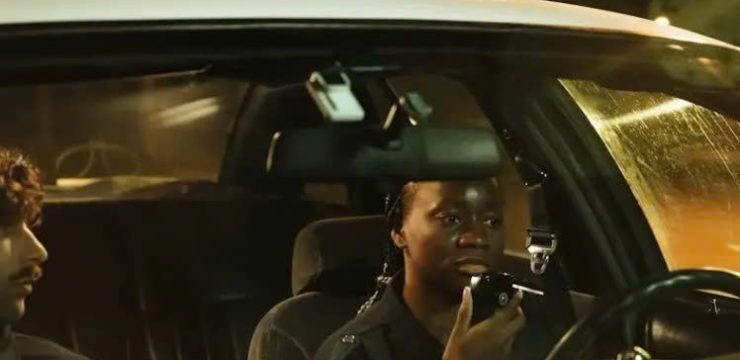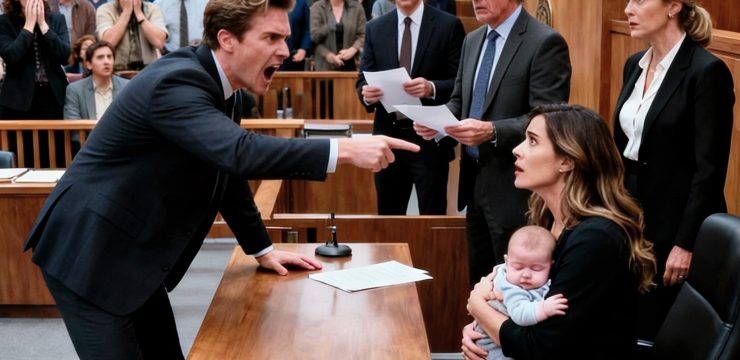In the fast-paced streets of New York City, where millions pass each other daily, an elderly homeless man named Bobby roamed unnoticed. With no home or money, Bobby carried the weight of his unfortunate circumstances but managed to maintain a spirit of kindness that belied his hardships. His life was a daily struggle, but one encounter would remind him—and others—that compassion still exists in the world.

One day, as Bobby wandered aimlessly, he caught the attention of Officer Aaron Page. Noticing Bobby’s weary demeanor, Officer Page approached him for a conversation. Bobby, perhaps in a moment of vulnerability, shared his simple wish. “All I really need is a hot shower and a haircut,” he said. His request was modest, a reflection of his immediate needs rather than grand desires. He didn’t ask for money, food, or a place to stay—just the dignity of feeling clean again.
For many, this request might have been easy to dismiss, but Officer Page saw Bobby not as just another homeless individual but as a person deserving of kindness. Instead of walking away or offering a superficial solution, Officer Page decided to act. He invited Bobby to come with him to the police precinct, not to process him for any wrongdoing, but to fulfill his humble request.
Once they arrived at the precinct, what followed was far beyond Bobby’s expectations. Instead of merely providing a shower and haircut, Officer Page enlisted the help of his fellow officers to give Bobby a full makeover. This wasn’t about doing the bare minimum—it was about restoring Bobby’s sense of dignity and showing him that he was cared for.
One officer brought clean clothes, ensuring Bobby had something fresh to wear. Another provided grooming supplies, while a third, adept with clippers, gave Bobby the haircut he had asked for. Together, the officers transformed the precinct, usually a place of law enforcement, into a hub of compassion and care. Their collective goal was to do more than just meet Bobby’s physical needs; they wanted him to feel seen, valued, and respected.
As the makeover progressed, Bobby’s appearance began to change, but the real transformation was in his spirit. By the time he looked in the mirror, he saw a reflection that was almost unrecognizable. His hair was neatly trimmed, his face was clean, and his new clothes fit him well. But it wasn’t just the physical changes that mattered—it was the emotional impact of the kindness he had received. Bobby’s smile said it all: he felt human again.
The officers, too, were deeply affected by the experience. This was more than a routine act of public service—it was a moment of connection, a reminder of the humanity that underpins their work. They didn’t treat Bobby as a statistic or a problem to be solved. Instead, they treated him as a person who mattered, and that made all the difference.
News of Bobby’s transformation quickly spread, touching the hearts of those who heard his story. It became an example of the profound impact small acts of kindness can have, not just on individuals like Bobby, but on the community as a whole. In a world often focused on fast fixes and impersonal interactions, this simple gesture of compassion reminded people of the importance of empathy.
For Bobby, the experience wasn’t just about the makeover. It was a reminder that even in the hardest of times, there are people who care enough to help. For the officers, it was a chance to go beyond their regular duties and make a real difference. And for everyone who heard the story, it was a reminder that kindness can change lives.
Bobby left the precinct that day with more than just a fresh look. He walked away with a renewed sense of hope and dignity, carrying with him the knowledge that he wasn’t invisible. The officers’ actions showed him—and the world—that even small acts of care can create ripples of positivity.
This story is a powerful example of how small gestures can have a big impact. It reminds us to look beyond appearances and to see the humanity in everyone, regardless of their circumstances. Bobby’s journey, and the compassion he received, challenge us to be kinder, to act when we see someone in need, and to remember that even the simplest acts of kindness can make a world of difference. In a city as vast as New York, this story stands out as a testament to the power of human connection and the enduring impact of compassion.





